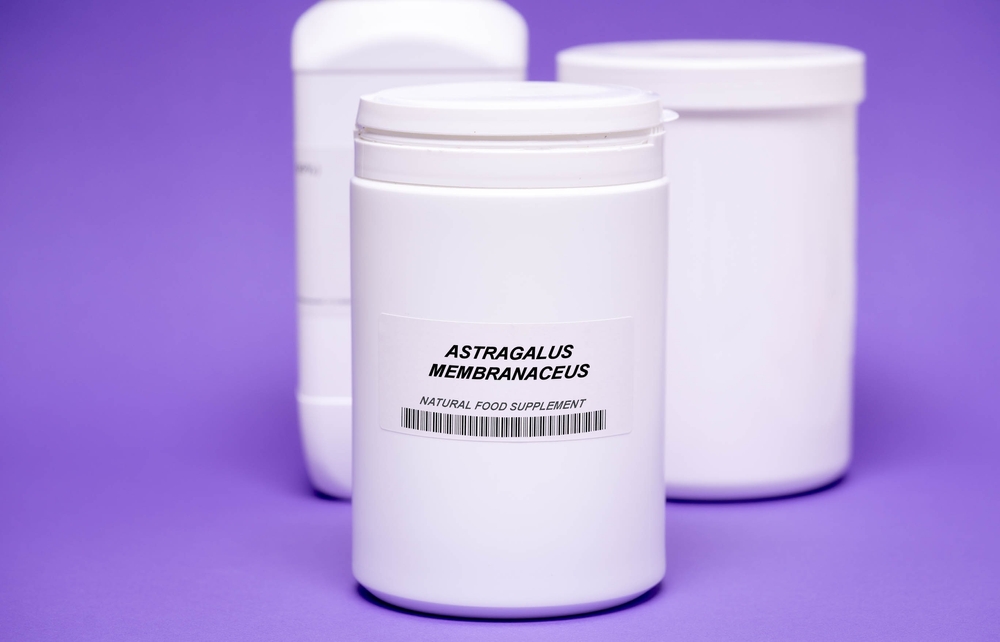In this article
Astragalus (Astragalus membranaceus) is a flowering plant that has been used in traditional Chinese medicine for many years. Common uses in human medicine include treatment against hay fever, kidney disease, and many other ailments. In veterinary patients, astragalus is mostly used for its immune support. So, you might think that it would be beneficial to your dog as well. But is that true? Let’s dive in.

What Is Astragalus?
Astragalus is a plant that has medicinal benefits. Astragalus belongs to the Fabaceae family of plants. It is important to note that there are several different types of Astragalus. However, Astragalus membranaceus is the variety found in supplements.
Astragalus has been used for years in traditional Chinese medicine. The root is the portion of the plant that is most typically utilized for its medicinal purposes. In addition to being an immune support, astragalus is also an adaptogen. An adaptogen is a plant that helps a being respond to stress. Flavonoids and saponins also offer antioxidant and anti-inflammatory benefits. A study published in 2010 reported that in a study that involved 100 dogs, immune-suppressed dogs experienced an increase in immunity levels when supplemented with astragalus at 200mg/kg.1

How Is Astragalus Given?
Astragalus is given orally but is available in different forms. Astragalus can be available as a tincture, capsule, tablet, or tea. The dosage will vary depending on the form given. This supplement is given once daily.
What Happens if You Miss a Dose?
If a dose is missed, it can be given when it is remembered, unless it is close to the time the next dose is due. Do not double up on doses. If you’re still unsure, make sure to reach out to a vet.
If you need to speak with a vet but can't get to one, head over to PangoVet. It's our online service where you can talk to a vet online and get the advice you need for your dog — all at an affordable price!
Potential Side Effects of Astragalus
Extensive research regarding negative side effects in veterinary species is not available. Additionally, safe use in pregnant or lactating animals has not been established. Some patients with certain medical conditions may not be good candidates to receive this supplement.
In humans, when given at correct doses, astragalus doesn’t appear to have serious side effects. Mount Sinai does mention that this herb could have undesirable interactions when used with other herbs. Furthermore, they mention that humans with autoimmune diseases should take the time to discuss astragalus with their medical providers prior to initiating, as it could stimulate their immune systems.


Frequently Asked Questions (FAQ)
Is Astragalus Available Over the Counter?
Yes, astragalus is available over the counter and doesn’t require a prescription. However, before initiating astragalus, your pet’s veterinarian should be consulted.
Is Astragalus Safe to Administer to Patients With Cancer?
Due to its ability to improve immunosuppression, astragalus is not always beneficial in patients with cancer. Your veterinarian should be consulted prior to the use of astragalus.
Is Astragalus Potentially Beneficial to Patients With Arthritis?
Yes, astragalus could potentially benefit patients with arthritis due to its anti-inflammatory properties.

Conclusion
Astragalus membranaceus is a plant that has been used for thousands of years in Chinese herbal medicine. Although astragalus has several potential uses, initiating this supplement in your dog should not be done without consulting first with your veterinarian. Due to its immune-support properties, astragalus may not be recommended in animals with autoimmune diseases. If astragalus is initiated in your pet and adverse effects are noted, veterinary care should be pursued.
Featured Image Credit: Eziu, Shutterstock


















